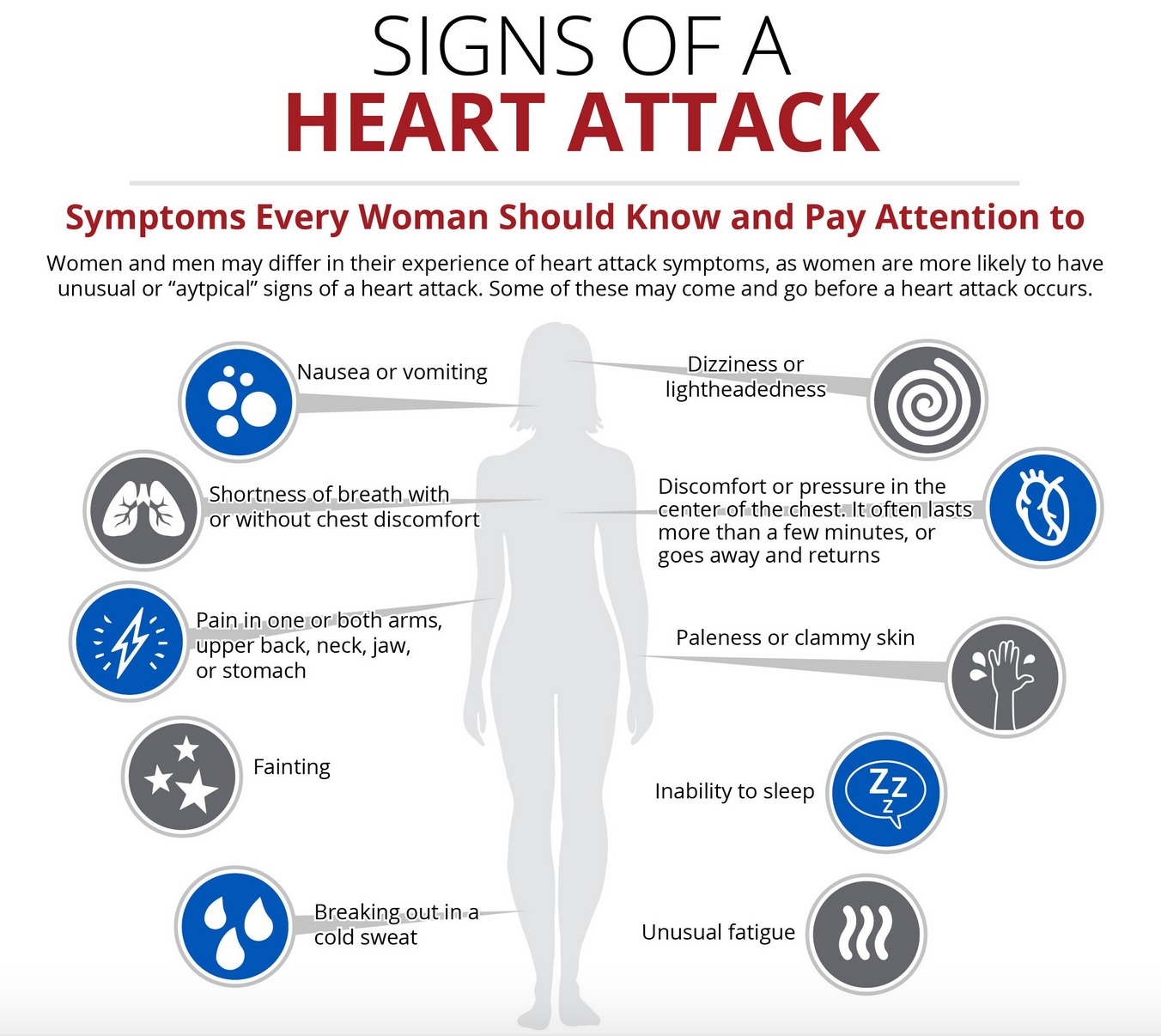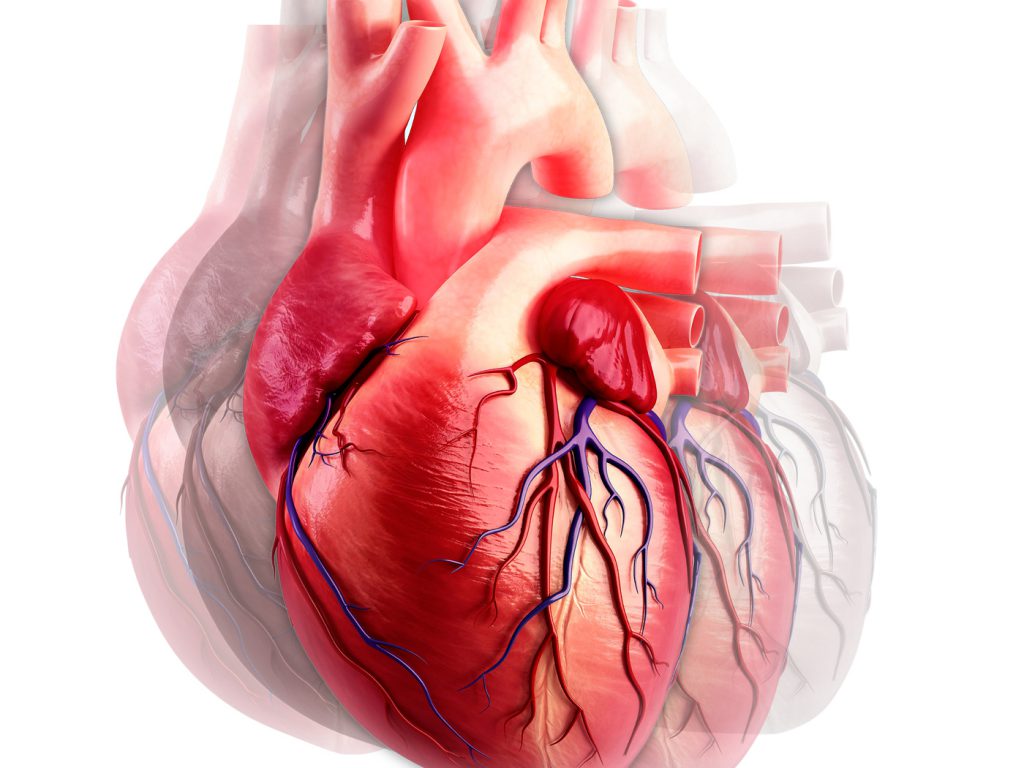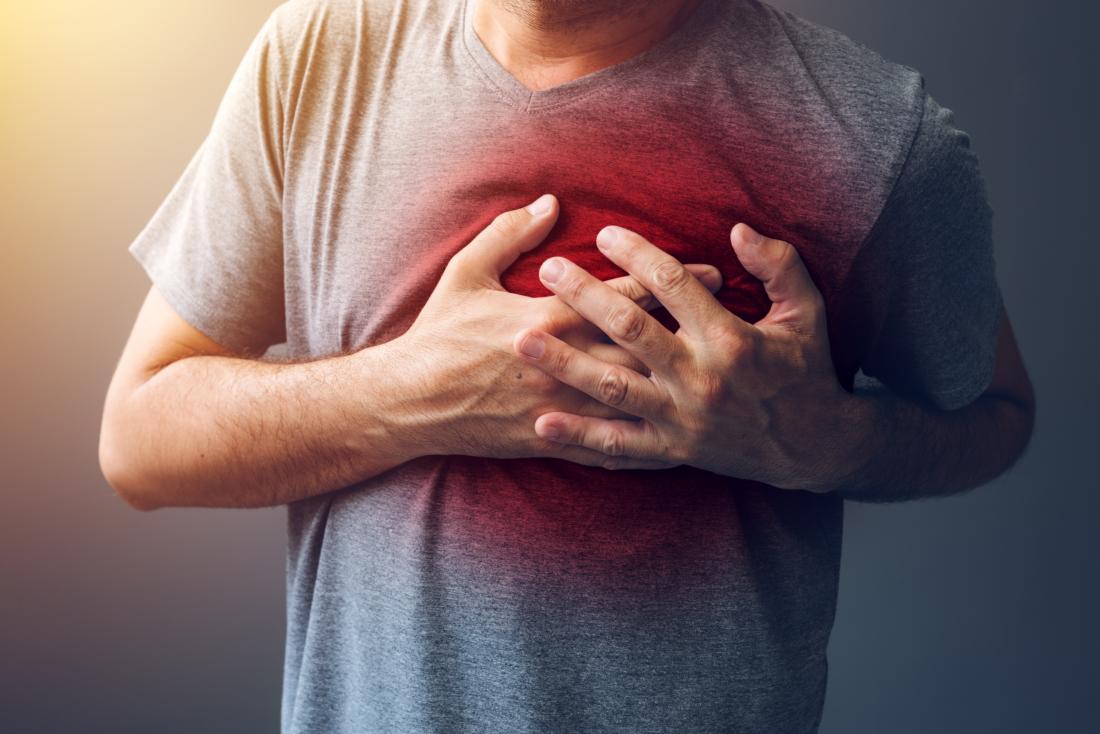Heart attack occurs because of damage of heart muscle. Muscles of the heart is damaged when it does not receive enough oxygen. Nourishment of heart for oxygen is supplied through blood.
This is similar to nourishment of other tissues in the body. A special type of blood vessels are responsible for the supply of oxygen to heart.
These blood vessels are known as coronary vessels. During heart attacks, flow of blood is stopped in these coronary vessels.
This is because of a clot in the coronary vessels. Therefore, the heart muscle is damaged. Which in turn leads to heart attack.
Heart Attack Symptoms
It has some obvious symptoms. These includes pain in chest as well as left arm. However, there are other symptoms of heart attack as well which are subtle.
These include abdominal pain, nausea, vomiting as well as palpitation. There are also other symptoms of dyspnea which is difficulty in breathing. Dizziness and perspiration is also at times experienced.

Source: Heart Sisters
The intensity of the symptoms of attack is not constant. It is in a coming and going manner. People who experience heart attack usually experience symptoms as warnings. These can be days or even hours before the actual attack.
Can heart attack without any symptoms occur?
When a person experiences heart attack without any prior sign, it is called “silent attack”. Such an attack can only be detected through routine check-ups.
People who have a family history are more prone to it. Moreover, people who smoke also are vulnerable to such attacks.
Studies show that women have more tendency to show the subtle signs. This is in comparison with men.

Source: Silver Sneakers
First aid which comes in handy
If a person is having heart attack, then Aspirin 325 mg comes in handy. Before going to emergency room, the patient can also use nitroglycerine.
Put a tablet of nitroglycerine under the tongue. Repeat the same process two to three times before going to the emergency room.
Besides taking the aspirin, call the ambulance as well.









